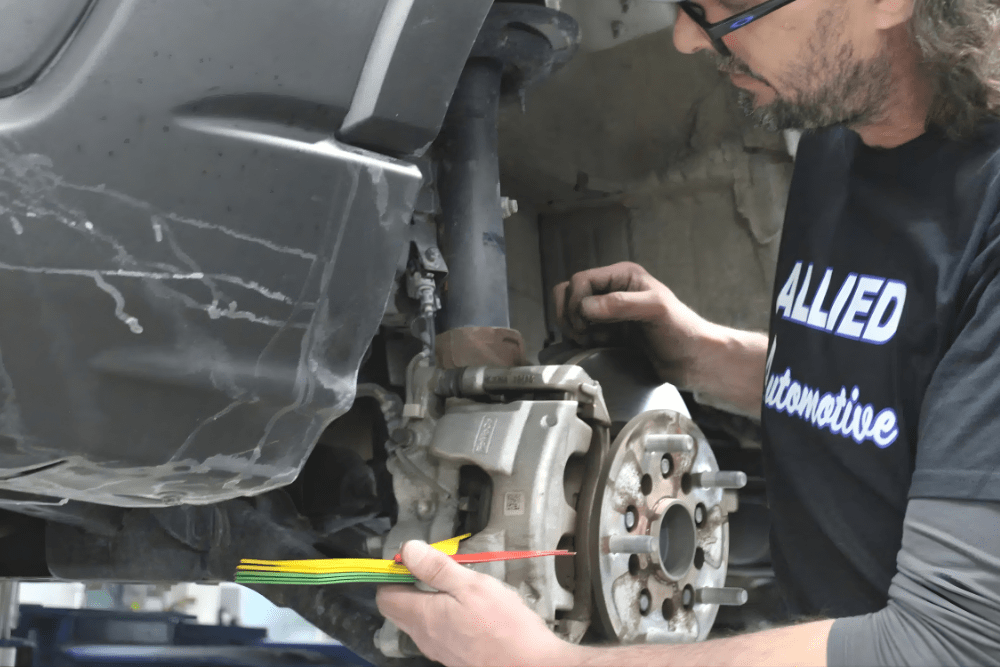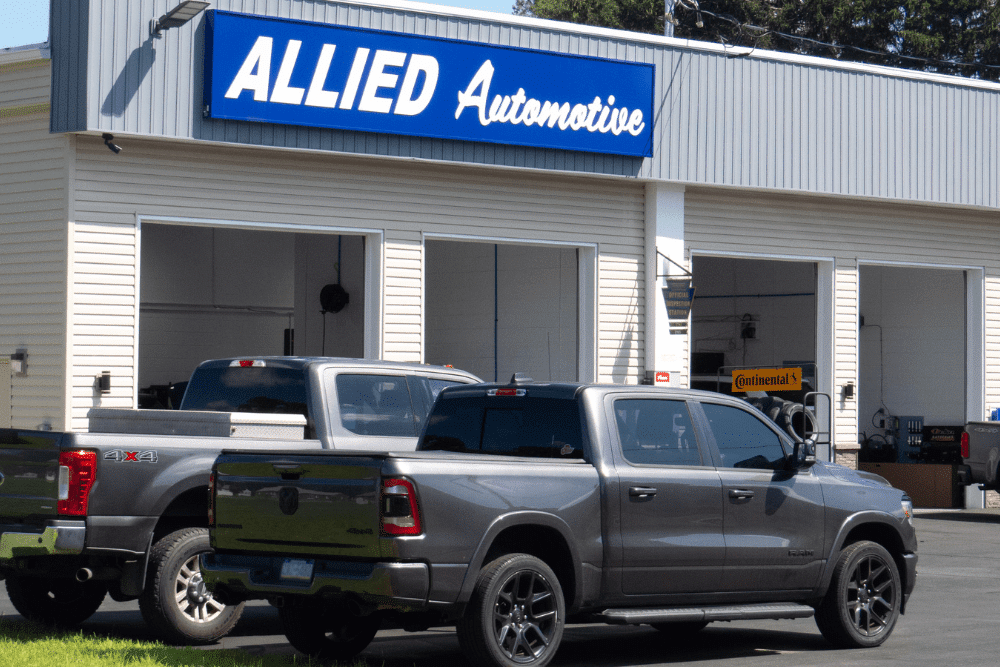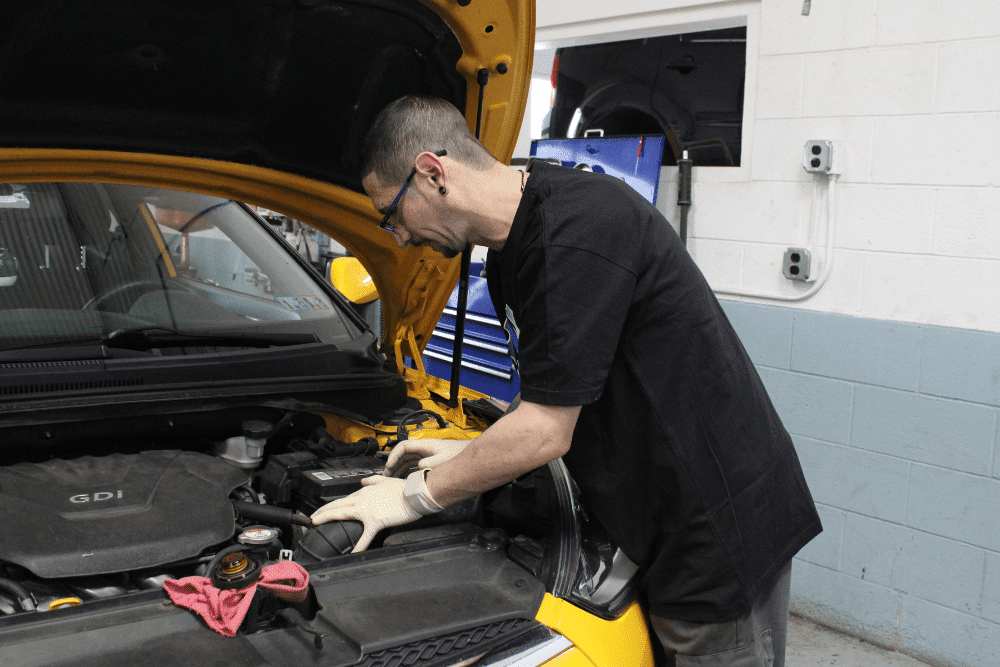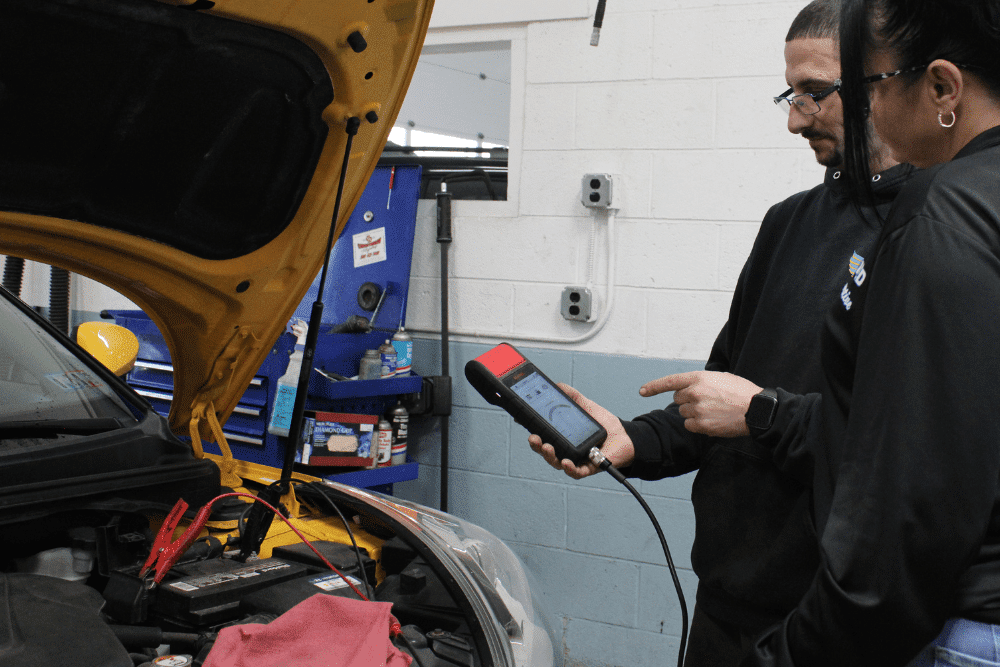Getting your brakes checked this fall in Allentown, PA, is one of the easiest ways to stay safe, save money, and prepare your vehicle for the colder months ahead. Seasonal changes bring slick roads, dropping temperatures, and unpredictable weather that all put extra stress on your braking system. A quick inspection now can make a big difference once winter arrives.
At Allied Automotive, we believe preventive care is the foundation of reliable driving. Our team understands how Pennsylvania’s fall conditions, from wet leaves to fluctuating temperatures, can affect how your brakes perform. In this article, we’ll explain why a timely brake inspection matters, what technicians look for during the process, and how early maintenance helps you avoid costly repairs later. Keep reading as we share the top five reasons to schedule your fall brake inspection today.
How a Simple Brake Check Can Prevent Major Repairs
Your vehicle’s braking system relies on hydraulic pressure. When you press the pedal, brake fluid moves through lines and forces the pads to clamp against the rotors, creating friction that slows the car. Over time, that heat and pressure wear down both pads and rotors.
Moisture, old fluid, or worn seals can also reduce braking response. You might not notice right away, but small issues can lead to a soft pedal, longer stopping distances, or strange noises.
A brake inspection in Allentown, PA identifies these early signs before they turn into major repairs. It’s a simple step that helps maintain safety and performance as road and weather conditions change.
1. Fall Roads Are Harder on Your Brakes
Fall weather in Pennsylvania can change quickly. Dry one day, wet and foggy the next. Add in falling leaves, and you have a mix of slick surfaces that make braking more difficult. These changing road conditions put extra stress on your braking system.
Here’s how fall conditions can affect braking performance:
- Moisture buildup: Humidity and rain introduce water into your brake fluid, which can reduce its effectiveness.
- Lower traction: Wet leaves and early frost reduce grip, forcing brakes to work harder.
- Temperature shifts: Hot brakes cooling too quickly can cause warping or cracking in the rotors.
If your car feels different when stopping, perhaps it vibrates, pulls to one side, or squeaks, that’s your vehicle warning you it’s time for an inspection.
Schedule your fall brake inspection today and make sure your car is ready for unpredictable autumn roads.
2. Prevent Small Problems from Becoming Costly Repairs
Your braking system naturally wears down over time. Pads thin out, rotors lose surface smoothness, and fluid quality decreases. If these aren’t caught early, they can lead to expensive damage. For example, once pads wear down to the metal backing, they can score or warp the rotors, requiring full replacement instead of a simple pad change.
A professional inspection checks for early warning signs like:
- Uneven pad wear or scoring on the rotor surface
- Low brake fluid levels or discoloration
- Corrosion or leaks in the lines and calipers
- Sticking calipers or warped components
By addressing these issues early, you extend the life of your braking system and avoid larger, more expensive repairs down the road. Routine checks also ensure other systems like ABS and traction control function correctly.
3. Keep Your Safety and Stability in Check
Your brakes don’t just stop your car; they also stabilize it. A vehicle with uneven or failing brakes can veer, pull, or skid when stopping, especially on wet or uneven pavement. This not only reduces comfort but also increases the risk of losing control.
If you notice:
- Squealing, squeaking, or grinding when you stop
- A pedal that feels spongy or too firm
- A burning smell after frequent stops
- Your steering wheel vibrating when braking
These are signs your brakes need attention. Modern vehicles rely on precise brake balance to maintain traction and control. During a brake inspection in Allentown, technicians check for proper pad engagement, rotor thickness, and even braking force across all wheels.
Consistent maintenance ensures smooth operation, better stability, and safer handling, especially when road grip is compromised by leaves, frost, or early snow.
4. Fall Is the Perfect Time for Preventive Maintenance
After a long summer of travel and heat, fall is the ideal time to check your car’s critical systems, not just your brakes, but also the components that work alongside them.
Combining your brake inspection with other seasonal maintenance saves time and ensures your vehicle performs well as temperatures drop.
A recommended fall maintenance checklist includes:
- Brake system inspection: Pads, rotors, calipers, and brake fluid quality
- Tire rotation and alignment: Balances wear and supports even braking response
- Battery test: Ensures reliable starts in colder weather
- Oil and filter change: Prepares your engine for temperature shifts
- Wiper blade and defroster check: Improves safety and visibility
At Allied Automotive, technicians perform Digital Vehicle Inspections (DVIs) with photos and detailed notes so you can clearly see what’s going on with your vehicle. This approach turns routine maintenance into a transparent, educational experience.
Book your comprehensive fall checkup now.
5. Beat the Winter Rush and Stay Ahead of Harsh Conditions
As temperatures drop, more drivers schedule last-minute repairs for brakes, tires, and heating systems. This seasonal surge often means longer wait times and more stress when you’re trying to prepare for winter travel.
Scheduling your brake inspection in Allentown, PA during the fall helps you:
- Secure faster appointment times before winter demand peaks
- Allow enough time to complete any needed repairs or order parts
- Avoid emergency visits during snow or ice events
Cold weather also accelerates corrosion, especially when road salt comes into play. By ensuring your brake components are clean, lubricated, and properly functioning now, you’ll minimize the effects of winter wear and improve your vehicle’s longevity.
Step-by-Step: How Technicians Inspect Your Brakes
Many drivers aren’t sure what a brake inspection includes. Here’s a breakdown of what technicians check during a standard visit:
- Road test: Evaluates brake response, noise, and pedal feel.
- Visual inspection: Examines pads, rotors, calipers, hoses, and fluid lines.
- Measurement: Pads and rotors are measured for thickness and surface condition.
- Fluid test: Checks for contamination or moisture that can reduce pressure.
- Report and recommendation: You receive a digital report with clear photos, notes, and repair options if needed.
The process is quick but thorough, giving you confidence that your vehicle is performing safely and efficiently. To learn more about how we repair and replace worn components, visit our Brake Repair Service page for details.
Get to Know Allied Automotive, Allentown’s Brake Specialists
At Allied Automotive, we take pride in helping Allentown drivers stay safe and confident on the road. Located at 5580 Quince Rd., our team focuses on making auto repair convenient, educational, and completely transparent. We take the time to explain every service and show you exactly what your car needs, so you always feel informed and in control.
Why drivers choose Allied Automotive:
- ASE-certified technicians who specialize in domestic and Asian vehicles
- OEM-level diagnostic tools that match dealership technology
- Free shuttle service and nine available loaner cars
- After-hours drop-off, secure pick-up, and mobile payment options
- Comfortable waiting area with Wi-Fi, coffee, and snacks
Every repair comes with a 36-month/36,000-mile parts and labor warranty and a 5-year workmanship warranty for peace of mind long after you leave our shop.
We operate by our core values, A.C.T.I.O.N. — Accountability, Commitment, Teamwork, Initiative, Optimism, and Nurture — because at Allied Automotive, we don’t just fix cars. We build lasting relationships through honesty and care.
Frequently Asked Questions
How often should I get my brakes inspected?
You should have your brakes inspected at least once a year or every 12,000 miles. Regular checks help catch pad wear, leaks, or fluid issues early. If you drive in stop-and-go traffic or hilly areas, it’s best to schedule inspections more frequently.
What are the signs that my brakes need to be checked?
Squeaking, grinding, vibration, or a soft brake pedal are signs your brakes need attention. You might also notice the car pulling to one side or taking longer to stop. Schedule a brake inspection right away if you notice any of these issues.
How long does a brake inspection take?
A professional brake inspection typically takes 30 to 60 minutes. Technicians test drive the vehicle, measure pad and rotor wear, check the fluid, and inspect calipers. You’ll receive a full report outlining your brake condition and any recommended repairs.
What happens if I delay getting my brakes inspected?
Delaying a brake inspection can lead to rotor damage, contaminated fluid, or even brake failure. These issues can become costly and unsafe. A quick inspection each season helps prevent expensive repairs and ensures reliable performance.
What’s included in a professional brake inspection?
A brake inspection includes checking pads, rotors, calipers, hoses, and brake fluid, along with a road test to assess performance. You’ll get a report with photos and notes. Learn more about the process on our Brake Repair Service page.
Don’t Wait Until Winter: Book Your Brake Inspection in Allentown, PA
If you’re looking for honest, high-quality brake service from a team that truly cares, Allied Automotive is here for you. We take pride in combining dealership-level tools with a personal touch that puts drivers first. Don’t wait until you hear a squeal or feel a vibration.
Schedule your brake inspection in Allentown, PA today, stop by 5580 Quince Rd, Allentown, PA 18106, or call 610-351-0020. Together, we’ll make sure your vehicle is safe, reliable, and ready for every road ahead.




